Colonists and Explorers of the New World Collection (5 vols.)
Digital Logos Edition
Overview
The history of the earliest American settlers is as dynamic and controversial as any in history. This collection collects some of the most important primary documents from the period, offering perspectives from explorers, politicians, and colonists. Including tales of the famed exploits of John Smith, William Bradford’s annals of the Plymouth Colony, and Thomas Morton’s intelligent denunciation of Puritan governance, this collection is an invaluable resource for anyone interested in early American history, sociology, and religion.
With the Logos edition, these valuable volumes are enhanced by cutting-edge research tools. Important terms link to dictionaries, encyclopedias, and a wealth of other resources in your digital library. Powerful topical searches help you find exactly what you’re looking for. Tablet and mobile apps let you take the discussion with you. With the Logos edition, the most efficient and comprehensive research tools are in one place, so you get the most out of your study.

Key Features
- Opens a window into the history and culture of early American settlement
- Includes important writings from leading figures such as John Smith, William Bradford, and Thomas Morton
- Includes firsthand accounts of a dynamic and controversial time in American history
Product Details
- Title: Colonists and Explorers of the New World Collection
- Volumes: 5
- Pages: 1,766
- Resource Type: Literature
- Topic: History
Individual Titles
- Bradford's History of Plimoth Plantation by William Bradford
- The New English Canaan of Thomas Morton by Thomas Morton
- A Description of New England by John Smith
- The True Travels, Adventures, and Observations of Captaine John Smith, vol. 1 by John Smith
- The True Travels, Adventures, and Observations of Captaine John Smith, vol. 2 by John Smith
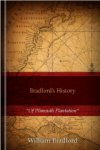
This historic document, William Bradford’s history of the Plymouth Colony from its inception in 1621 to 1647, gives readers access to “what manner of men the Pilgrims were, through what perils and vicissitudes they passed,” and how the colony is woven into the history and culture of America. Bradford’s account of the life and governance of the colony will fascinate anyone interested in religious or American history.
William Bradford (1590–1657) was an English Puritan leader and a signatory of the Mayflower Compact. He served as governor of the Plymouth Colony five times, covering almost 30 years.
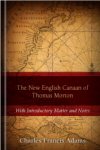
Thomas Morton’s classic denunciation of Puritan governance in the colonies, The New English Canaan speaks against the Puritans land enclosure and their dealings with Native Americans. He depicts Native Americans as a noble culture and called for the “demartializing” of the colonies and a multicultural nation. Morton also prophesies about the immense economic potential of the Americas. The New English Canaan provides a fascinating counterpoint to the well known Puritan voices of the period that will be interest to anyone studying the history of American politics and economics.
Thomas Morton (1579–1647) was an early American colonist from Devon, England. He is best known for founding the colony of Merrymount and his studies of Native American culture.
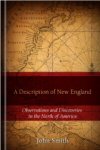
Recounting his two voyages two the Americas, the famed John Smith describes the fish, soil, inhabitants, wildlife, vegetation, and climate from Cape Cod to Penobscot. This is the first place where the term “New England” is applied to the area, and accordingly Smith’s work served as an encouragement to investors and settler to transplant English culture to the Americas, and take advantage of a wealth of opportunities for fisheries, fur trading, settlement, and more.
John Smith (1580–1631) was an English soldier, explorer, and author. He played an important role in the permanent establishment of English colonies in America. He became the leader of the Virginia Colony and was the first explorer to map the Chesapeake Bay area and New England—a term he coined. His books and maps were extremely influential in drawing English support for colonization.
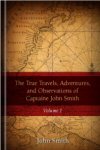
Containing accounts of his travels throughout Africa, Asia, and America, this autobiographical account of John Smith’s adventures established his popular reputation as an American hero—known for his work ethic and diplomacy with Native Americans. Though there is some doubt about his credibility, especially due to discrepancies in his accounts, this volume is invaluable for students of American history and sociology. Among the colorful tails in The True Travels are Smith’s famed relationship with Pocahontas and his numerous experiences in captivity across the globe.
John Smith (1580–1631) was an English soldier, explorer, and author. He played an important role in the permanent establishment of English colonies in America. He became the leader of the Virginia Colony and was the first explorer to map the Chesapeake Bay area and New England—a term he coined. His books and maps were extremely influential in drawing English support for colonization.
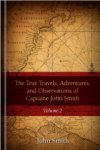
Containing accounts of his travels throughout Africa, Asia, and America, this autobiographical account of John Smith’s adventures established his popular reputation as an American hero—known for his work ethic and diplomacy with Native Americans. Though there is some doubt about his credibility, especially due to discrepancies in his accounts, this volume is invaluable for students of American history and sociology. Among the colorful tails in The True Travels are Smith’s famed relationship with Pocahontas and his numerous experiences in captivity across the globe.
John Smith (1580–1631) was an English soldier, explorer, and author. He played an important role in the permanent establishment of English colonies in America. He became the leader of the Virginia Colony and was the first explorer to map the Chesapeake Bay area and New England—a term he coined. His books and maps were extremely influential in drawing English support for colonization.